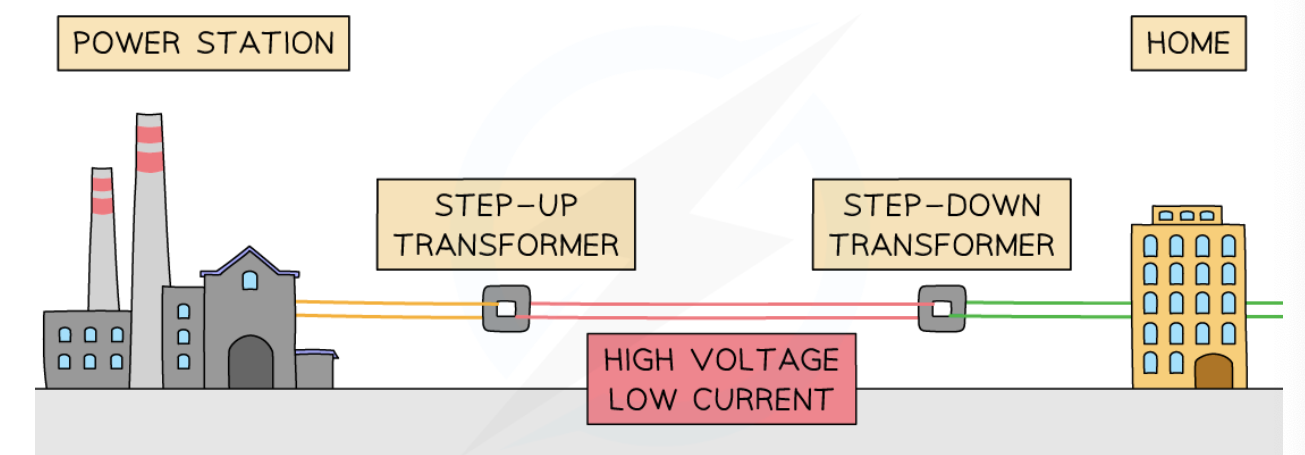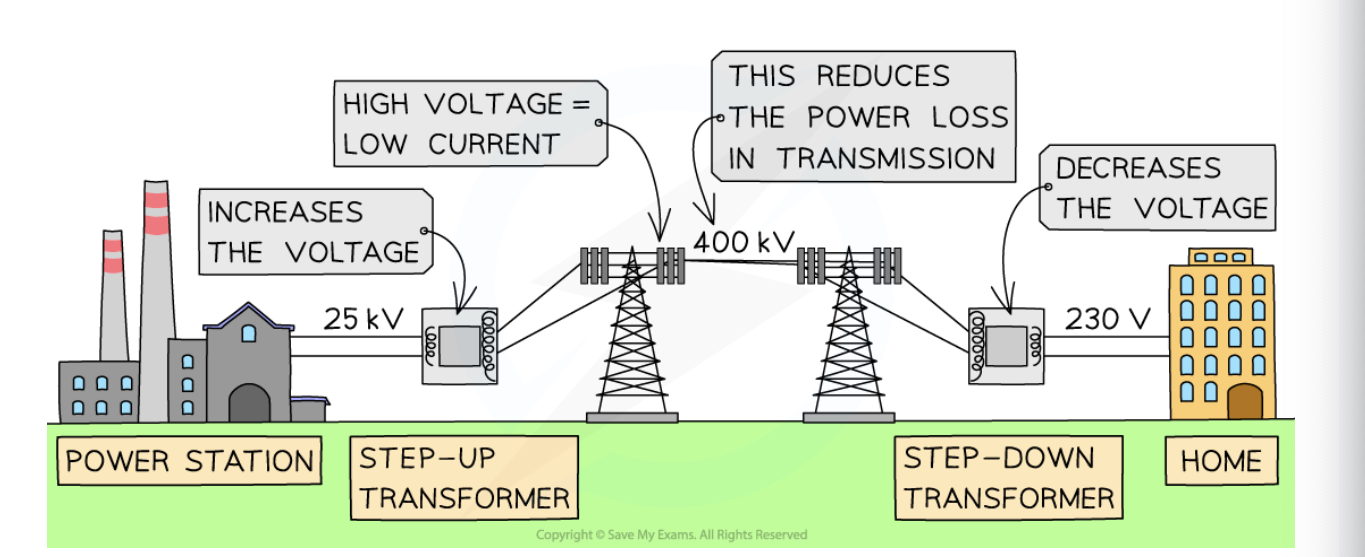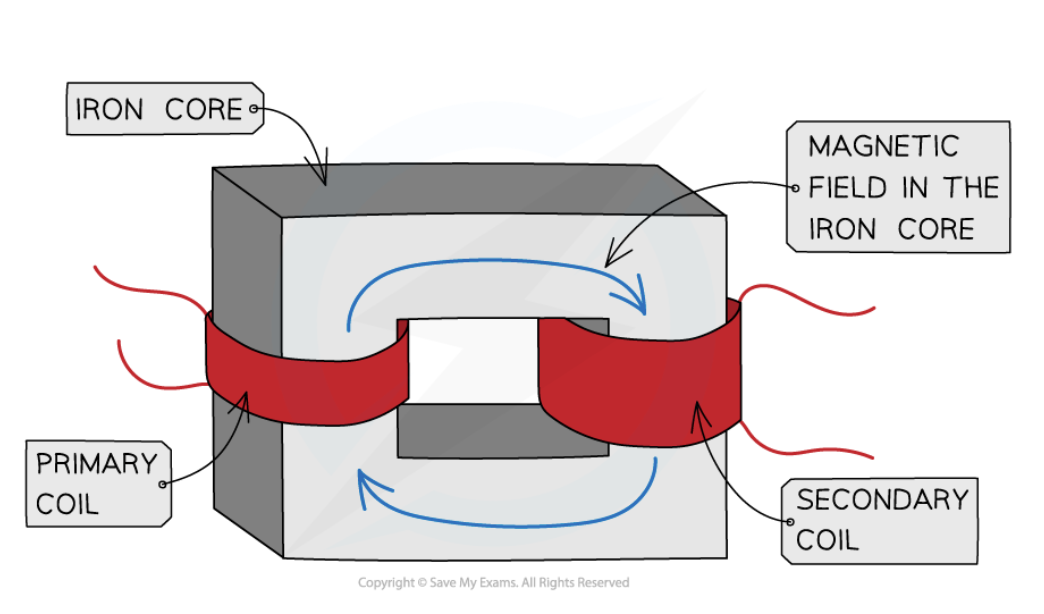the national grid
1/14
There's no tags or description
Looks like no tags are added yet.
Name | Mastery | Learn | Test | Matching | Spaced | Call with Kai |
|---|
No analytics yet
Send a link to your students to track their progress
15 Terms
purpose of the national grid
The National Grid distributes electricity across the UK
what does the national grid consist of
It consists of a system of cables and transformers linking power stations to consumers (houses, factories and buildings)
how does the national grid transfer electricity?
Electrical power is transferred from power stations to consumers using the National Grid
purpose of step up transformers
Step-up transformers which increase the voltage (and reduces the current) through the wires
purpose of step down transformers
Step-down transformers which decrease the voltage (and increases the current) through the wires

benefit of national grid in energy transfer?
The National Grid system is an efficient way to transfer energy due to the use of step-up and step-down transformers
disadvantages of power stations? and how can it be more efficient?
When electricity is transmitted over large distances, the resistance in the wires causes heating, which results in wasted energy transfers
By increasing the potential difference at which the current is transmitted, the same amount of powercan be transferred using a much smaller current (due to the equation P = IV)
This results in less heating in the wire and hence less wasted energy
so what does it mean for the relationship beterrn p.d, current and power
Therefore:
High potential difference means low current (less energy dissipated) for the same power
Low potential difference means high current (more energy dissipated) for the same power
Explain how the step-up transformer increases the efficiency of the National Grid.
The lower the current, the less heating due to resistance there will be in the wires
From the diagram, the step-up transformer increases the voltage and decreases the current in the cables
By decreasing the current, the energy dissipated to the thermal store of the surroundings through the power cables is reduced
Therefore, there is more energy being transferred to homes which increases the efficiency of the National Grid

what is the type of current produced in power stations and how is it transferred?
The type of current produced in power stations is alternating current (AC) which is transferred to homes via the National Grid
what are transformers used to do?
Transformers are used to increase and decreases the potential difference of the current before and after transmission across the National Grid
what are transformers made of>
They are made up of two coils of wire, called the primary and secondary coils, around a magnetic iron core

comparison on the structure of step up and step down transformers?
A step-up transformer has more turns on the secondary coil than the primary
A step-down transformer has more turns on the primary coil than the secondary
what are step up transformers used for?
Step-up transformers are used to increase the potential difference from the power station to the transmission cables
what are step down transformers used for>
Step-down transformers are used to decrease the potential difference, to a much lower value, from transmission cables for domestic use (houses, offices, shops)